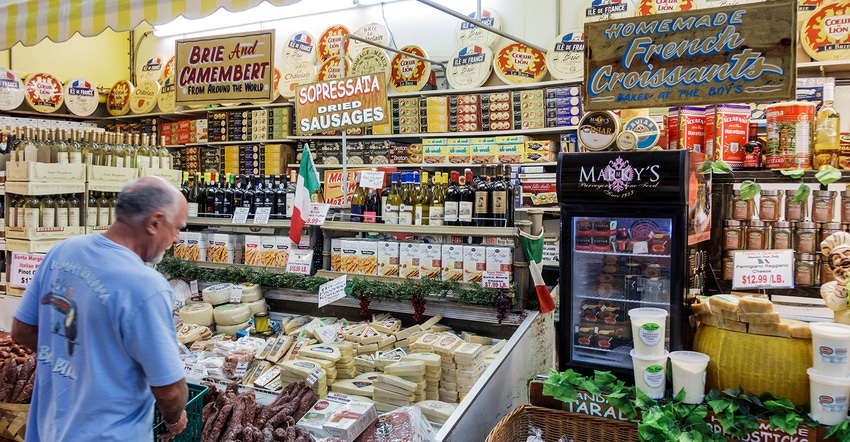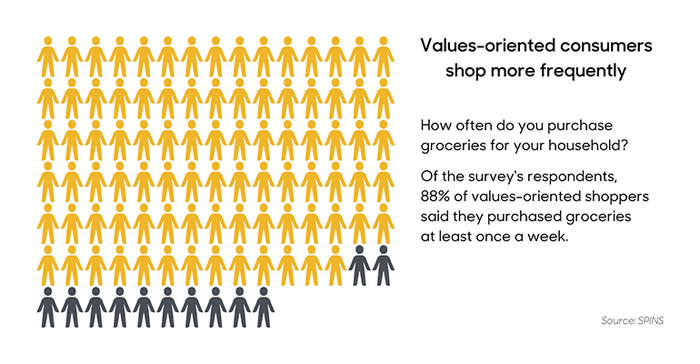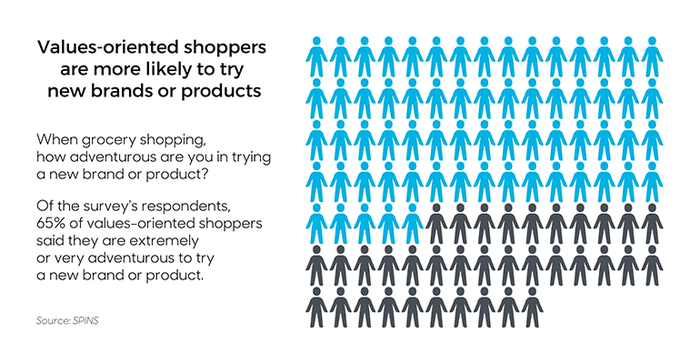Who is the values-oriented consumer—and why should you care?
Values-driven consumers shop more frequently and are more likely to try new brands and products—traits that make them valuable to retailers and brands.

Every consumer has a list of priorities that includes price, ingredients, convenience and more when they head to the store. Today, some shoppers prioritize larger ideals that make for a more complicated but influential customer. They are the values-oriented consumer—and they make up 49% of consumers.
Who is the values-oriented consumer?
SPINS surveyed a representative sample of shoppers and asked them to measure the importance of five product and packaging characteristics: product certifications, label claims, ingredients, special diet types and presence of certain functional ingredients. If they rated at least three of these characteristics as important to their buying habits, they were classified as a values-oriented consumer.
For these shoppers, who have access to a wide variety of store and product options, a trip to the store is personal and a chance to use their dollars to support products that meet their standards. They want products that are good for people, good for health, good for animals, and good for the planet.

The label is just the start
While values-oriented consumers look at product packaging to understand what they’re purchasing, they don’t stop there. These shoppers can use any resource available to them—QR codes, shelf tags or websites, to name a few—to go beyond the label and discover a complete picture of the product:
74% of values-oriented shoppers always or usually look at ingredients prior to purchasing a product.
75% of values-oriented shoppers always or usually pay attention to labels on the packaging for food and beverages.
73% of values-oriented shoppers are influenced by product certifications when purchasing a product.
Once they learn about these products and find one that meets their criteria, they are willing to put their dollars where their values are:
8 in 10 values-oriented shoppers identify animal welfare, environmental welfare, labor/worker welfare, and ingredient sourcing as worthy of paying a premium for.
Nearly 9 in 10 values-oriented shoppers are willing to pay a premium specifically for health and wellness attributes.

Winning these shoppers is important
At first glance, the values-oriented consumer might sound like a high-end customer who sticks to specialty stores. The truth is that they are open to a broad range of shopping experiences. Values-driven shoppers are more likely than their counterparts to patronize natural retailers, but they are also more likely to shop at warehouses, big box stores and online outlets. That’s noteworthy when you consider that 88% of values-oriented consumers buy groceries at least once a week, and 65% are extremely or very adventurous when it comes to trying new brands and products. These shoppers are actively seeking out new items, doing their homework before making a purchase and heading to the store more than other shoppers.
The values-oriented consumers are bringing all this passion and diligence to every store they go to, proving that any retail experience is an opportunity for them to find a product that supports their values. The values-oriented consumer might be the most multi-dimensional shopper the industry has seen, which makes understanding their many priorities and earning their loyalty crucial to your business. SPINS has the product intelligence that allows you to understand the values-oriented shopper with an extensive database containing millions of UPCs, thousands of attributes and rich analyses that let you go beyond the label. When you can map values to products, you can meet the values-oriented consumer where they are. Read the eBook to learn more.
About the Author(s)
You May Also Like




